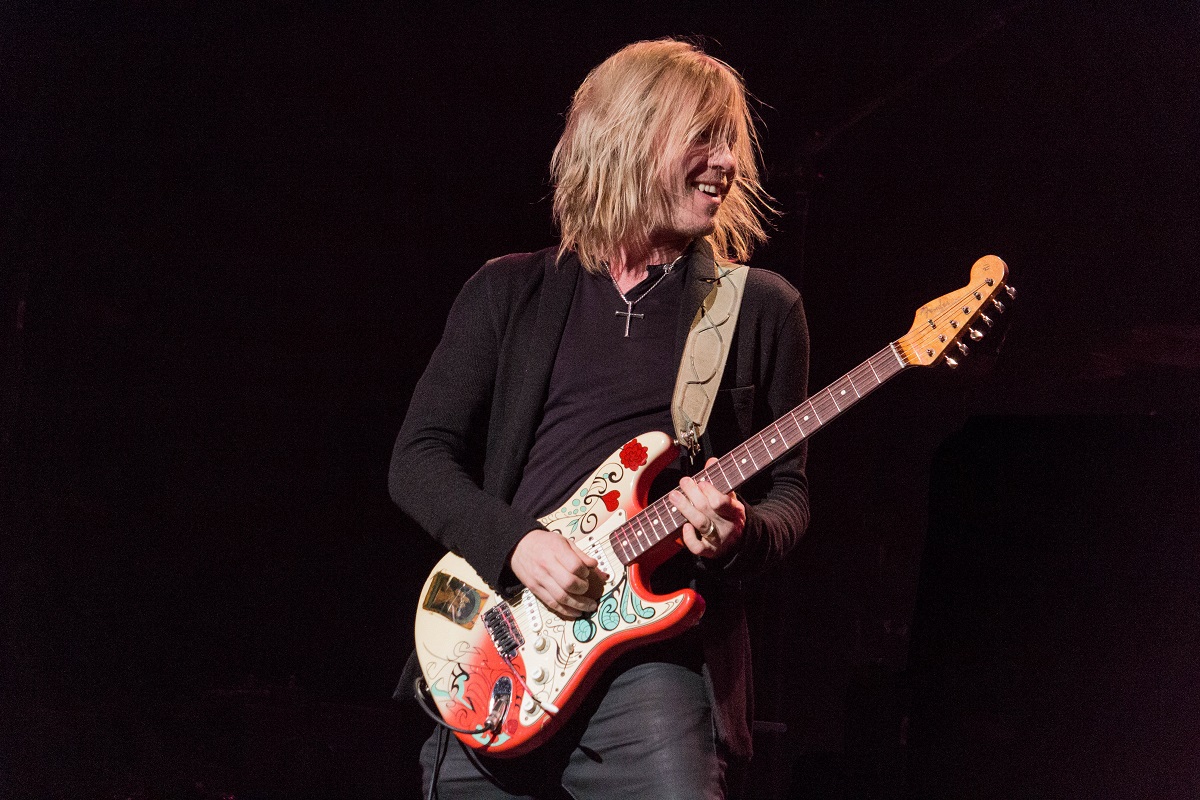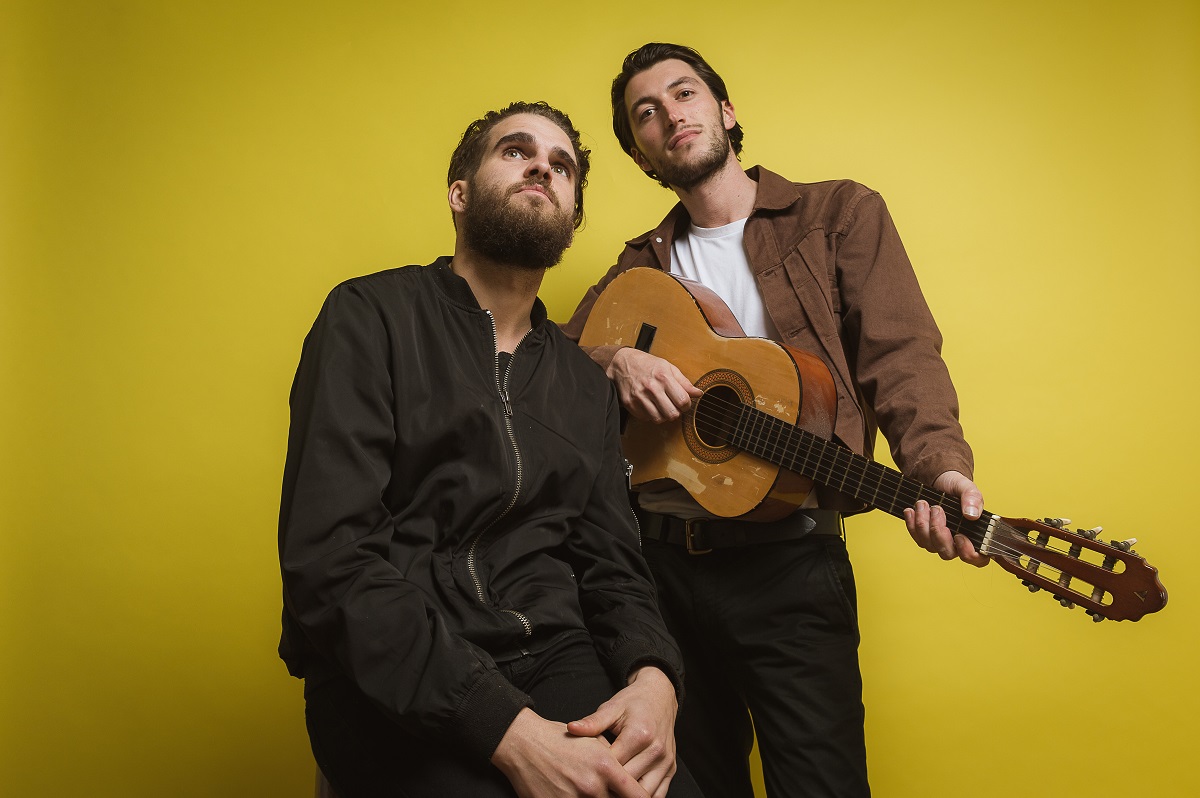Blues guitarist Kenny Wayne Shepherd met his true love in the showroom of the Guitar Center on Sunset Blvd. It was a ‘61 Fender Stratocaster, with a $7,000 price tag the 17-year-old couldn’t afford.
“It was one of the defining moments of my life,” Shepherd recalls. “I picked up that guitar and it fit my hand like a glove. It pained me fiercely to have to walk away from that guitar when I first found it.”
The next time Shepherd touched down in Hollywood, he hustled back to the Guitar Center’s vintage room to make sure the instrument was still there.
“I still didn’t have the money to buy it, but I refused to leave without it,” he says. “I knew that, if I left it a second time, it wouldn’t be there again.”
Shepherd managed to convince his attorney, an associate from his record label, and his father to split the cost of the guitar until he could pay them back.
Over the years, Shepherd gathered a collection of unique Stratocasters, including a custom stars-and-stripes model and a replica of the flowery Fender famously burned by Jimi Hendrix at Monterey, but the ‘61 Stratocaster from Sunset Blvd. remains “the one” for him. Although the instrument’s body has grown battered over the years, now displaying as much wood grain as finish, Shepherd dismisses the idea of cleaning it up.
“Refurbishing it would kill it,” he says. “That’s like looking at a Picasso and going, ‘You ever thought about repainting that to make it look more realistic?’ You would just destroy everything that it is by doing that.
“Every mark on that guitar is an honest scar. Those are battle scars. Every scratch, every nick and every ding on that thing has been earned. It’s like a well-seasoned cigar, a marinated steak, an aged wine. However you want to look at it, what has been accomplished in the playing of that instrument over the past 60 years is something that could never be duplicated by refurbishing it. You would be subtracting a quality that you wouldn’t be able to regain for another 60 years.”
Shepherd’s Aussie tour – showcasing his 2017 album Lay It On Down – marks his first voyage Down Under since Bluesfest 2012. Shepherd is eager to return so he can reconnect with Australian crowds and his wife Hannah, an Adelaide native, can visit family.
“I’ve always loved Australia, even before I married my wife,” Shepherd says. “The crowds have always been good to us there. Every year, I’ve been telling my agents, ‘Man, we need to be going to Australia more.’ I think I finally got the point across.”
Shepherd says he keeps the Australian gold record for his 1997 release Trouble Is… on display in his living room.
“The whole live experience is an exciting one, because you never really know what’s going to happen,” he explains. “I push my equipment to the limit, so sometimes things break. Things blow up. I’ve had my amp catch fire in the middle of a show before. You never know what might happen, so you just have to go out there and roll with it.
“That’s the whole reason we make records: so we can bring the music to the people, in person. The band thrives off of the energy and the reaction of the fans. I don’t know if the audience realises how big an effect they can have on the show and the band’s performance just by their reaction.
“We will rehearse certain structures and certain arrangements, but we always leave the opportunity open for something spontaneous to happen. It’s really about the human element in music, and playing off of one another.”
Shepherd will be supported on his Australian tour by Ash Grunwald, the ARIA-nominated blues performer known for his brash, amp-warping guitar riffs and sun-faded dreadlocks. Grunwald’s music reflects more nostalgia for the big sounds of the ‘60s and ‘70s than does Shepherd’s.
“He’s got a nice retro blues vibe to what he does, but it’s also very edgy,” Shepherd says of Grunwald.
When Shepherd played his first headline gigs in 1992, he’d walk away after a night’s work with $200 to be split four or five ways amongst the band. Twenty-six years and three platinum records later, Shepherd is one of the highest-selling blues artists working. Streaming and online piracy, however, have bitten into album sales enough that he no longer weighs success in gold and platinum.
“The old barometers for success in the music industry have been upended,” Shepherd says. “In today’s world, there’s nobody in this genre who’s going to be selling millions of records. With people streaming albums or downloading them without paying for them, it’s just not going to happen. It’s a completely different world, so you have to change how you measure success.
“Today, success is not about platinum records for me. Success is about whether people are coming to see the music live, whether they’re sending me messages saying that the music touched them. That’s how you have to measure success in today’s world.”
After spending the first half of 2018 away from the spotlight with his family, Shepherd has begun a series of tours that will reach into 2019. He’s also putting the finishing touches on his upcoming ninth studio album, which is “almost done”.
“Good music is good music, doesn’t matter where you’re at,” Shepherd says. “The name of the game is to keep the ball rolling, release the next album, get the show on the road and then do it all over again.







